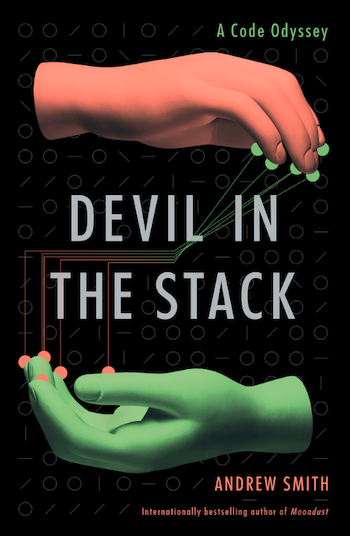The value of making things
I had two recent conversations that left me feeling hopeful for humanity in our tech-saturated society. And just in time, too: every day seems to bring news of another outrageous, forehead-slapping comment by a tech oligarch. No wonder people are anxious, seeing how the billionaires behave before the inauguration of their ❤️favorite president ever❤️.
It’s summarized well in this political cartoon by Ann Telnaes, who resigned from the Washington Post after the cartoon was rejected by the Bezos-owned paper:

The richest, most powerful people in the country are applying their resources toward even closer alignment with power - rather than, say, addressing the harms created by their platforms. Democracy at risk? Teenagers being harmed? Social fabric being ripped? Not our problem, say the oligarchs, we’ve found a way to accumulate just a bit more for ourselves. (Brian Merchant’s latest post has details.)
Given the news, it’s all the more reassuring to come across people who are approaching their work with genuine excitement and integrity. Two conversations, both on Techtonic, recently stood out:
1. Andrew Smith wants you to code
I spoke to Andrew Smith (Dec 30) about his book “Devil in the Stack,” where he recounts his experience learning a programming language for the first time in his 50s. Along the way, he gives readers a wide-ranging tour through computer history, neuroscience, and the friendliest programming language.
Stream the interview with Andrew Smith
See episode page with links and playlist memes
As I told Andrew at the end of the interview, his book comes across as a love letter to coding. There is a beauty and elegance to a well-written piece of code, and the art of constructing such a program is well worth learning. The problems – as Andrew’s book also covers – arise when people use their coding skills to surveil and exploit others, all at the behest of the oligarchs.
Lesson: Tech can be good, if people are willing to do good with tech.

2. Chris Pellettieri teaches humans, not robots, to carve stone
Next up (Jan 13) was my conversation with Chris Pellettieri, founder of Pellettieri’s Stone Carving Academy, and his student Arissa Ramoutar.
Robots are being trained to carve stone, following a 3D template file, but it’s not the same as human-carved stone, says Chris. For one thing, the experience of carving – “zoning in” to the work, moment-to-moment, and the joy of developing a skill – is available only to human carvers.
Stream the interview with Chris and Arissa
See episode page with links and playlist memes
I start the interview by playing a clip from the cofounder of Suno, the generative AI “music” company, saying that people don’t want to learn musical instruments because of the time, effort, and difficulty involved. So much easier to push a button! Both Chris and Arissa give rousing testimonials to the value of focusing on one stone, over weeks or months, chipping away until the work is done.
Lesson: Humans still have a role, even in occupations where robots are “taking over.” Learning a manual skill is, and always will be, worthwhile.

Sneak peek of a third conversation
Coming up this Monday, Jan 20, I’ll be speaking on Techtonic with Kirk Pearson, author of Electronic Music from Scratch: A Beginner's Guide to Homegrown Audio Gizmos. This was another inspiring conversation about how we humans can make things better – in this case, by noodling around with circuits that make weird noises!
Here’s the episode page where I’ll post links, and where listener comments will appear during the live broadcast (6pm to 7pm Eastern).
If you’d like to be part of a community seeking better ways to live with technology, join the pro-human community at Creative Good.
Until next time,
-mark
Mark Hurst, founder, Creative Good
Email: mark@creativegood.com
Podcast/radio show: techtonic.fm
Follow me on Bluesky or Mastodon
🙏
P.S. Your subscription is unpaid. If you want to support my work on the newsletter, please join us at Creative Good. (You’ll also get access to our members-only Forum.)